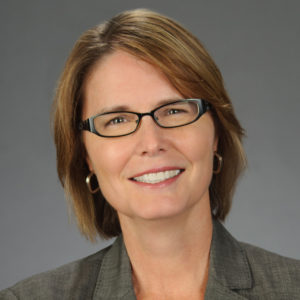Georgia is a nexus of global payment processing and merchant acquiring activity. Some two-thirds of all U.S. purchase volume is processed there. That’s a lot of debit and credit card transactions. But what are those same companies doing to improve payments for the underbanked?
That combination of payments technology and financial inclusion concerns was the focus of a panel discussion last week at the second Fintech South conference in Atlanta. Representatives from PayGo Utilities, Incomm, the Federal Reserve Bank of Atlanta, and the Georgia Public Service Commission discussed how the tech underpinning Transaction Alley can be leveraged to promote financial inclusion. Here’s some recollections from the panel I moderated.
Taking the Prepaid Model to the Electric Bill
Stimulating the conversation was the prepaid payment option deployed by Georgia Power called CheckOut™, a solution developed by PayGo Utilities. Georgia Power’s need for the product coincided with the closure of customer service centers around the state where many consumers had made walk-in payments for their electric power and now needed a convenient way to pay that bill.
PayGo’s Jeff Weiser explained how CheckOut works:
- PayGo software integrates with the biller system, utilizing meter data, allowing for real-time consumption monitoring
- The software has an algorithm that anticipates usage, allowing customers to be notified as their prepaid account funding level gets low
- When it’s time to pay, the consumer shows a barcode representing her account number (can be on a printout or an app), which can be quickly scanned as cash is paid in at grocery and convenience store locations and have that payment quickly “top up” her utility account. Payment can be made via the utility’s existing payment channels or using the rails of Incomm’s VanillaDirect Pay.
Payment geeks will immediately note that the prepaid model plus a simple barcode tied to the consumer’s electric meter makes for a simple-to-deploy solution – a bit like buying airtime with a Brazilian boleto.
Usage patterns on the Georgia Power solution are interesting, offering advantages to both the consumer and the biller. Georgia Public Service Commissioner, Tim Echols, noted that subscribers who opt for the CheckOut solution have an average $31 balance and avoid tying up large sums of money. Text message, email, and voice reminders alert the user if the balance is running low. Traditional postpaid utility customers with arrearages break their “payment arrangement” with the utility over 80% of the time. To date, across the U.S., over 70% of prepay customers actually pay off their entire arrearage.
Prepaid as a Tool for Financial Inclusion
While PayGo Utilities is working with utility companies around the country, the need in the Southeast is particularly high because the region lags behind other parts of the country on many indicators of financial inclusion. According to Jessica Washington from the Federal Reserve Bank of Atlanta Retail Payments Risk Forum, the Southeast generally has higher rates of unbanked, 7.7 percent unbanked compared to a 6.5% national average. There is also a lower savings rate for emergencies and higher rates of people without access to mainstream credit.
From a policy perspective, Commissioner Echols spoke about the desire to promote more solutions like this because it leads to less stress and greater savings for the consumer. Certainly no one wants to worry about their utility bill payment (or spoiled groceries in the fridge), but users on this plan also tend to be more consumption aware and, on average, consume 10 percent less power.
CheckOut users pay a fee of $1.50 each time they load funds to their account. In exchange for the pay-as-you-go funding model, users avoid deposit and reconnection fees if the account is funded again within the next seven days.
I think there’s a reasonable argument to be made whether or not consumers should have to pay up to $6.00 a month or $72 per year (that’s four reloads a month) just to keep their electricity connected. Nevertheless, given that cash flow and funds availability are a constant juggling act for the poor, CheckOut provides value and meets the criteria for a relevant financial service as laid out by CFFSI’s Jennifer Tescher as articulated in a recent American Banker article:
“What financially vulnerable people need is access to high-quality products and experiences built to help them succeed …. They need real-time advice and guidance, tailored to their specific situation and immediately actionable.”
Incomm CFO, Scott Meyerhoff, described this as “inclusion through innovation.” He noted that there is both the need and the capability to improve “services and infrastructure” to enable greater financial inclusion. By this measure, financial inclusion is eminently within our reach. Faster, more efficient, and ultimately cheaper transactions should be the mantra for those providers focusing on the underbanked consumer segment.
What are the next steps? The Atlanta Fed is researching these and other payments technologies suitable for financial inclusion for a future publication. Then, we’ll be able to see if and how Atlanta’s Transaction Alley is contributing to these innovations.


